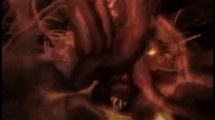Abstract
Political aesthetics deploy theatrical techniques to unite performers and audience into a cultural community, thereby distracting from conflicts. The Kano Durbar in northern Nigeria demonstrates how the aesthetics of power can promote a place-based political culture. Although power in Kano rests on a wobbly three-legged stool of traditional, constitutional and religious authority, the status quo celebrated by the Durbar holds back ideological challengers like Boko Haram even as it perpetuates distance from the unified nation-state. The Durbar works as a social drama that helps sustain a Kano-based collective solidarity against the threats of ethnic/religious tensions and Salafist extremism. A cultural-sociological and dramaturgical analysis of the Durbar demonstrates how weak sources of power can support one another when bound together in an aesthetically compelling ritual.
Similar content being viewed by others
Author information
Authors and Affiliations
Corresponding author
Rights and permissions
About this article
Cite this article
Griswold, W., Bhadmus, M. The Kano Durbar: Political aesthetics in the bowel of the elephant. Am J Cult Sociol 1, 125–151 (2013). https://doi.org/10.1057/ajcs.2012.8
Published:
Issue Date:
DOI: https://doi.org/10.1057/ajcs.2012.8




